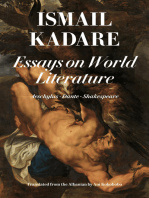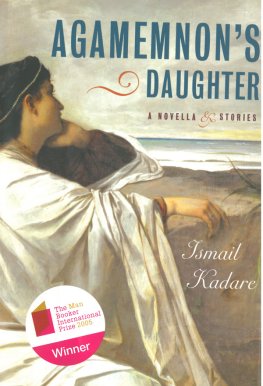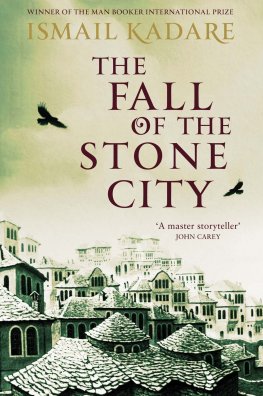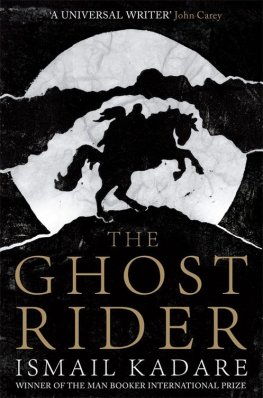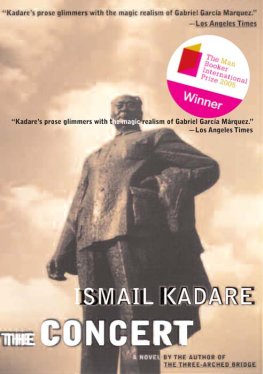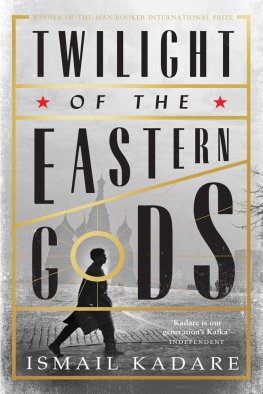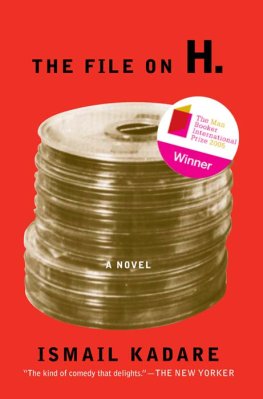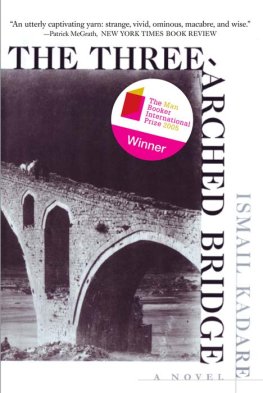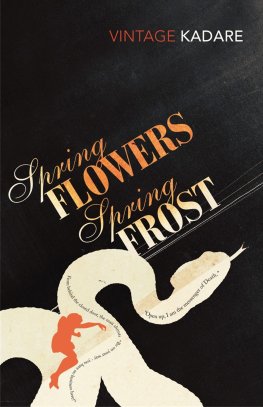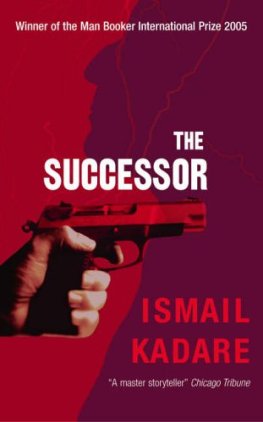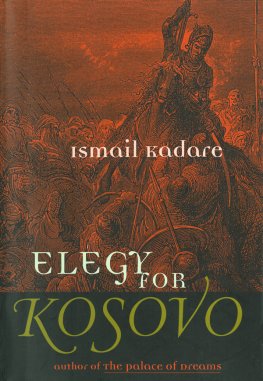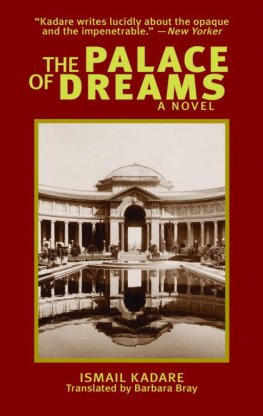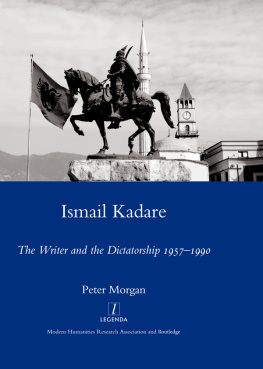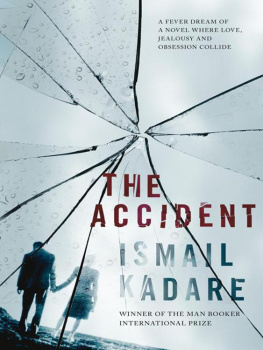Ismail Kadare - Essays on World Literature: Aeschylus • Dante • Shakespeare
Here you can read online Ismail Kadare - Essays on World Literature: Aeschylus • Dante • Shakespeare full text of the book (entire story) in english for free. Download pdf and epub, get meaning, cover and reviews about this ebook. genre: Religion. Description of the work, (preface) as well as reviews are available. Best literature library LitArk.com created for fans of good reading and offers a wide selection of genres:
Romance novel
Science fiction
Adventure
Detective
Science
History
Home and family
Prose
Art
Politics
Computer
Non-fiction
Religion
Business
Children
Humor
Choose a favorite category and find really read worthwhile books. Enjoy immersion in the world of imagination, feel the emotions of the characters or learn something new for yourself, make an fascinating discovery.
- Book:Essays on World Literature: Aeschylus • Dante • Shakespeare
- Author:
- Genre:
- Rating:5 / 5
- Favourites:Add to favourites
- Your mark:
- 100
- 1
- 2
- 3
- 4
- 5
Essays on World Literature: Aeschylus • Dante • Shakespeare: summary, description and annotation
We offer to read an annotation, description, summary or preface (depends on what the author of the book "Essays on World Literature: Aeschylus • Dante • Shakespeare" wrote himself). If you haven't found the necessary information about the book — write in the comments, we will try to find it.
Essays on World Literature: Aeschylus • Dante • Shakespeare — read online for free the complete book (whole text) full work
Below is the text of the book, divided by pages. System saving the place of the last page read, allows you to conveniently read the book "Essays on World Literature: Aeschylus • Dante • Shakespeare" online for free, without having to search again every time where you left off. Put a bookmark, and you can go to the page where you finished reading at any time.
Font size:
Interval:
Bookmark:
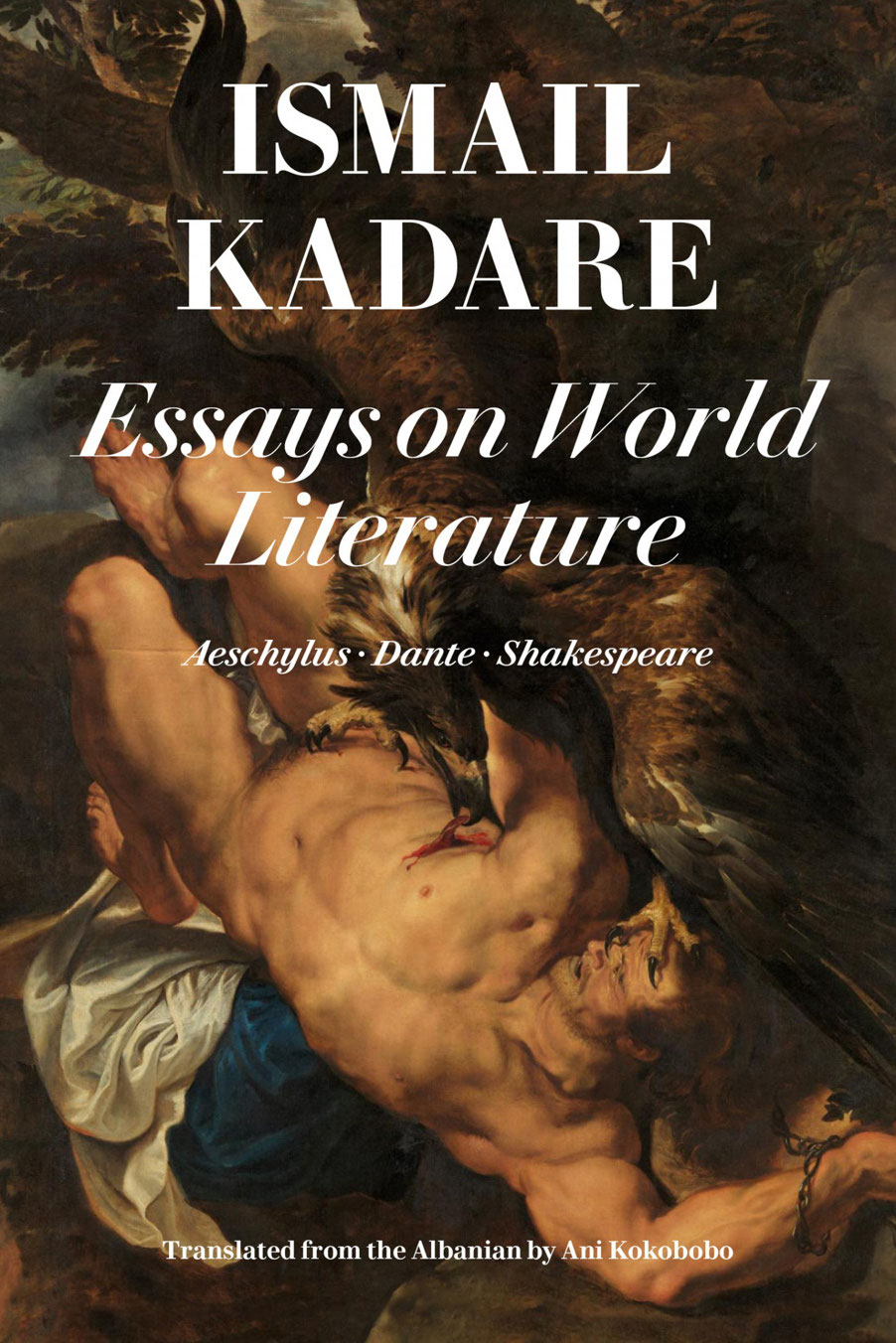
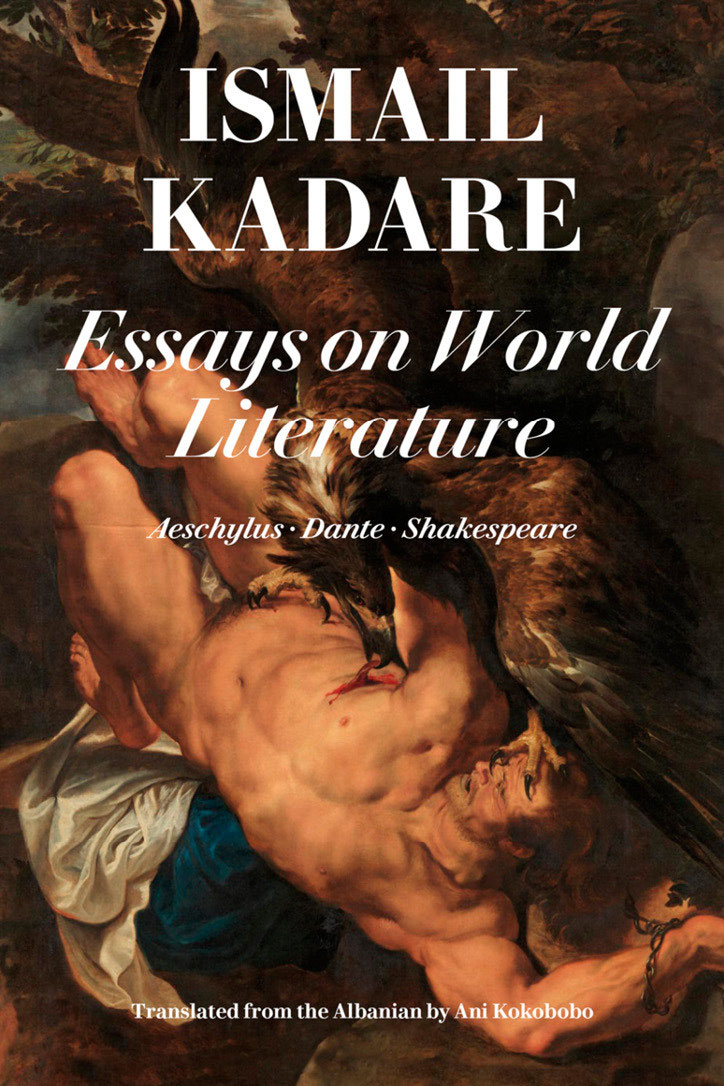
Praise for
Ismail Kadare
The name of the Albanian novelist Ismail Kadare regularly comes up at Nobel Prize time, and he is still a good bet to win it one of these days he is seemingly incapable of writing a book that fails to be interesting.
Charles McGrath,
The New York Times
Kadares novels are full of startlingly beautiful lines bracingly original similes swarm with an apparent casualness gloomy and death-obsessed, but also frequently hilarious.
Christian Lorentzen,
The New York Times Book Review
Kadares books reflect his country and are imbued with Albanian myths and metaphors [giving] both the sense and essence of a totalitarian state in language that, while straightforward, is literary and often allegorical. Kadares body of translated work demonstrates that he is deserving of wider acclaim and readership.
Seattle Post-Intelligencer
If only most thriller writers could write with Kadares economy and pace Kadare, magician that he is, offers just enough information for his readers to make myriad interpretations. He is the most beguiling and teasing of writers who understands that what may not be apparent now may well be in a distant future.
The Sunday Herald
An author who richly deserves the Nobel Prize.
The Huffington Post
Mr. Kadare, winner of the Man Booker International Prize has more in common with the experimental-fiction writers Alain Robbe-Grillet and Jorge Luis Borges were gazing on a multilevel storytelling realm where, whether you are a student of Balkan history, a lover of Greek myth or a German taxi driver, the warning signs all say the same thing: Dont look back.
Tom Nolan,
The Wall Street Journal
Ismail Kadare has been writing fiction steeped in history from a front row seat in Albania for more than half a century.
Sally Reynolds,
Los Angeles Times
Kadare is inevitably likened to Orwell and Kundera, but he is a far deeper ironist than the first, and a better storyteller than the second. He is a compellingly ironic storyteller because he so brilliantly summons details that explode with symbolic reality.
James Wood, The New Yorker
The intriguing Albanian master Ismail Kadare. Kadares authorial tone is invariably ironic and his fiction is playful, as if he has never lost sight of exactly how ridiculous humankind tends to be.
The Irish Times
Also by Ismail Kadare
The General of the Dead Army
The Siege
Chronicle in Stone
Broken April
The Three-Arched Bridge
The Palace of Dreams
The Concert
The File on H
The Pyramid
Elegy for Kosovo
Spring Flowers, Spring Frost
The Successor
Agamemnons Daughter
The Blinding Order
The Fall of the Stone City
The Accident
The Ghost Rider
Twilight of the Eastern Gods
A Girl in Exile
The Traitors Niche
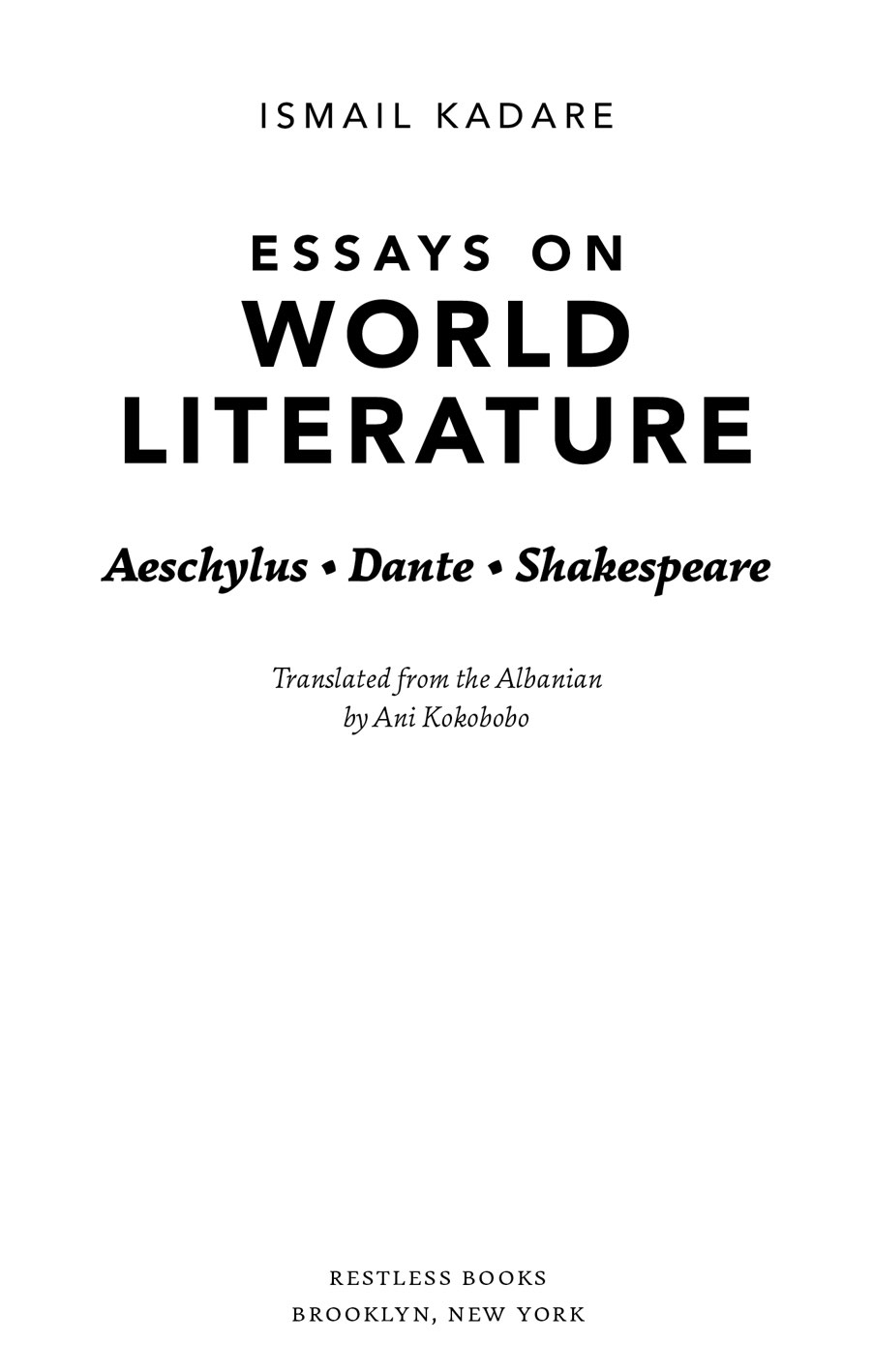
There were close to 750,000 bunkers in Enver Hoxhas communist Albaniaenough to hold each of the nations three million inhabitants. By the 1980s, these spaces had become dilapidated, garbage-ridden, and, in the case of my own neighborhoods shelter, a favored hiding spot during childhood games. Although no foreign attack ever prompted their use as places of refuge, the bunkers instead served the purpose of trapping the Albanian soul within the concrete and barbed wire of Enver Hoxhas regime for nearly fifty years. That any sort of art should flourish in so inhospitable an environment was unlikely. That this inferno of political repression and isolation could breed a literary genius of Ismail Kadares caliber is nothing short of miraculous.
Winner of the inaugural Man Booker International Prize in 2005 and a perpetual contender for the Nobel, Kadare has written over twenty major novels. As its leading literary voice since the 1960s, Kadare is alone in the Albanian canon, with no forerunners and, so far, no successors. In his fiction and nonfiction alike, he brings an unprecedented level of sophistication to the Albanian language by elegantly joining together its two dialects, the northern Geg and southern Tosk, to achieve tremendous linguistic depth. After immigrating to Paris in 1991 and dividing his time between France and Albania, Kadares literary creativity assumed a broader, European scope; these days, he is as much an Albanian as he is a European writer, fully integrated in the French literary scene. His current place in-between nations reflects the worldly scope that Kadare was always able to achieve in his writing, despite leading a tightly confined existence during Hoxhas regime. Not only has he been both published and praised in forty-five major languages, but his work also encompasses a range of themes and styles with a dexterity that firmly places him among some of the twentieth centurys greatest modernist writers: Vladimir Nabokov, James Joyce, and Milan Kundera.
The essays included in this collection are important documents of self-disclosure that guide us through Kadares creative laboratory. The earliest essay, Aeschylus, the Lost dates to 1985, while Albania was still under communism, whereas Dante, the Inevitable and Hamlet, the Difficult Prince were written in 2005 and 2006 respectivelyover a decade after the downfall of the communist regime. These essays treat world literature as a system of interconnected networks that extends beyond national boundaries. They also open up a window into Kadares existential loneliness to show how the author, by connecting to the whole of world literature from a great distance, flourished in a climate as toxic to art as Hoxhas Albania. As Kadare reveals by connecting Albania and the Albanian culture to the tradition of world literature, no cultures or literatures are ever fully isolated. In the absence of immediate literary brethren, Kadare found inspiration and camaraderie by reading Shakespeare, Dante, and Aeschyluswriters distant in time and spacein Albanian translations, which he then cross-referenced with the original texts.
Aeschylus, the Lost, Dante, the Inevitable, and Hamlet, the Difficult Prince illustrate the hybridity underlying Kadares creativityhow he traveled across the world through books and circled back to Albanian customs and culture. As a young boy, he tells us in Hamlet, the Difficult Prince, Kadare copied Shakespeares Macbeth by hand, making small changes here and there, and thus tingeing the foreign text with his own Albanian experience. The essays in this volume show Kadare forging similar ties across the world with other books he deeply admires.
The most obvious place where literary kinships are articulated is in Dante, the Inevitable, which maps out the Italian authors ties to Albania. Ever ready to stray from realism, Kadare finds in Dantes Inferno a poetic creation that vividly captures the oppressiveness of Albania during communism and during the nineteenth-century Ottoman occupation. Kadare, who in novels like The Palace of Dreams and Broken April took it upon himself to recreate Albanias present and her history through allegorical devices similar to Dantes, made the Italian author his own, much as he had appropriated Macbeth as a child.
Kadare reveals that Dante is beloved among Albanians for somehow, from a bygone era, capturing the nuances of their plight. Aeschylus and the Shakespeare of Hamlet share a similar bond with the Balkan people. In Aeschylus, the Lost, Kadare traces connections between the vengeance motif in Greek tragedy and the blood-vengeance customs still present in the Albanian mountains. Through such similarities, he advances a hypothesis that places the roots of tragedy in Balkan culture, particularly the deeply vivid funerary and marital rites of the region.
Next pageFont size:
Interval:
Bookmark:
Similar books «Essays on World Literature: Aeschylus • Dante • Shakespeare»
Look at similar books to Essays on World Literature: Aeschylus • Dante • Shakespeare. We have selected literature similar in name and meaning in the hope of providing readers with more options to find new, interesting, not yet read works.
Discussion, reviews of the book Essays on World Literature: Aeschylus • Dante • Shakespeare and just readers' own opinions. Leave your comments, write what you think about the work, its meaning or the main characters. Specify what exactly you liked and what you didn't like, and why you think so.

